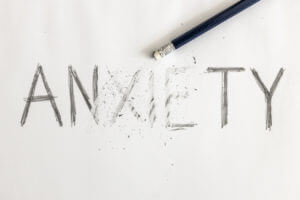
Anxiety is a normal human emotion. It’s a response to stress or fear and is an essential part of our “fight or flight” response.
However, when this normal human emotion becomes overwhelming and interferes with daily life, it is known as an anxiety disorder. Anxiety disorders can seriously impact one’s quality of life and can manifest in different ways.
In this blog, we will discuss different types of anxiety disorders and their symptoms to help you understand them better. Additionally, we will also mention a healthcare facility where you can go to seek anxiety treatment.
Generalized Anxiety Disorder (GAD)
Generalized anxiety disorder (GAD) is a prevalent mental health condition that includes feelings of excessive worry, fear, and a constant sense of being overwhelmed.
GAD can affect anyone at any age. Women and those assigned female at birth are twice as likely to be affected by GAD compared to men and those assigned male at birth.
GAD affects about 3% of the adult population, and in children between the ages of 13 and 18, the prevalence of severe anxiety disorder is approximately 6%.
Symptoms of GAD
The main symptom of GAD is excessive and persistent worry about everyday things. This persistent feeling of dread interferes with how you live your life.
People with GAD have trouble controlling their feelings of nervousness or worry. The patient often knows that they worry much more than they should.
Physical symptoms may include:
- Restlessness and feeling on edge
- Fatigue, difficulty concentrating, and irritability
- Muscle tension or muscle aches
- Difficulty sleeping or unsatisfying sleep
- Shortness of breath, heart palpitation, or stomachache
Panic Disorder
Panic disorder is a form of anxiety disorder, primarily marked by the occurrence of panic attacks that come unexpectedly and abruptly. These attacks are characterized by intense fear and physical symptoms such as accelerated heart rate, rapid breathing, and perspiration.
Although panic attacks are not inherently dangerous, their frequent recurrence can adversely affect an individual’s lifestyle.
Symptoms of Panic Disorder
Symptoms of panic disorder may include:
- Sudden and repeated attacks of intense fear
- Feelings of being out of control during a panic attack
- Intense fears about when the next attack will happen
- Avoiding places where panic attacks have occurred in the past
Specific Phobias
This refers to an intense fear of a specific object or situation, such as snakes, heights, or flying. The level of fear or dread is usually inappropriate to the situation and may cause the person to avoid common, everyday situations.
Symptoms of Specific Phobias
Some common symptoms of specific phobias are as follows:
- Excessive worry about seeing something your fear or being in a situation you fear
- Immediate intense anxiety upon exposure to the object or situation
- Enduring the situation with intense anxiety or distress
Separation Anxiety Disorder
This disorder refers to a psychological condition in which an individual experiences excessive anxiety regarding separation from home or from people to whom the individual has a strong emotional attachment (like parents, siblings, or long-term romantic partners).
This disorder is more common in children but can also affect adults.
Symptoms of Separation Anxiety Disorder
Common symptoms of separation anxiety disorder include:
- Panic or distress when separated from attachment figure
- Persistent and excessive worry about being alone
- Unwillingness or refusal to sleep away from home or to go to sleep without being near an attachment figure
- Repeated nightmares of separation
- Complaints of physical symptoms (like headaches, stomachaches, nausea, or vomiting) when separation from major attachment figures occurs or is anticipated
Mental Health Conditions That Share Features with Anxiety Disorders
There are some mental health conditions that also share symptoms with anxiety disorder. These include:
Obsessive-Compulsive Disorder (OCD)
People with this type of disorder may have symptoms of obsessions, compulsions, or both. These OCD symptoms can interfere with all aspects of life, such as work, school, and personal relationships.
Common Symptoms of OCD include:
- Fear of germs or contamination
- Unwanted taboo thoughts involving sex, religion, and harm
- Aggressive thoughts towards others or self
- Having things in a perfect order
Post-Traumatic Stress Disorder (PTSD)
PTSD can develop after a traumatic event like war, rape, child abuse, natural disasters, or being held captive.
Symptoms of PTSD include:
- Flashbacks—reliving the past trauma over and over, including physical symptoms like a racing heart or sweating
- Bad dreams or frightening thoughts
- Avoiding places, events, or objects that are reminders of traumatic experiences
Anxiety Disorders Treatment at Abundance Health Care
If you or a loved one is grappling with anxiety disorder, don’t hesitate to seek anxiety treatment. At Abundance Health Care, we provide comprehensive mental health services including anxiety treatment. Our highly trained certified nurse practitioner uses a holistic approach to understand the underlying causes of your anxiety and tailor a treatment plan that suits your needs.
To schedule a consultation for anxiety treatment, call us at (720) 869-0547 or fill out our easy-to-use appointment request form. We look forward to serving you!


